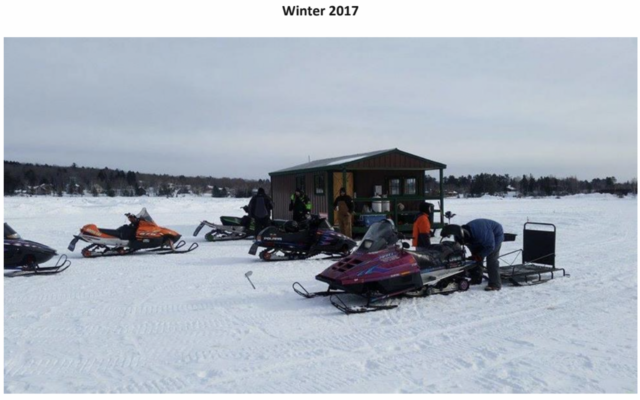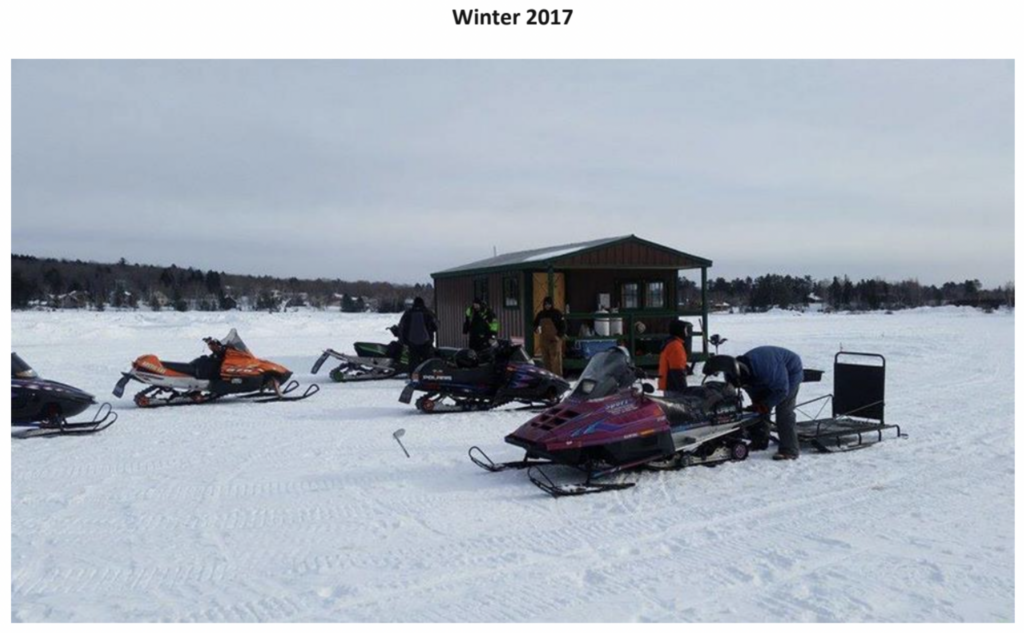
If Maine cracks down on floating camps, what does that mean for ice shacks?
By Julie Harris, Bangor Daily News Staff
Fishermen who read the Bangor Daily News/Piscataquis Observer story about how the state is looking to define and regulate floating camps brought up a few concerns about their ice shacks.
Floating camps are unregulated structures that people anchor offshore or tether to something onshore. They are not boats or houseboats, and have drawn complaints from shore property owners and others. The issue is forcing the state to come up with solid definitions for boats, houseboats and floating camps so the buildings can be regulated.
If the state cracks down on structures that are allowed on lakes and ponds, will ice shacks, which have been legal, be next in line for tighter regulations?

FLOATING CAMP — A year-round floating rental camp on the frozen surface of Moosehead Lake.
It turns out that although sparse, the state already has some regulations for ice-fishing shacks. There is even a legal definition in Maine’s state statutes: “a temporary structure used for ice fishing on frozen inland waters.”
Shacks or other temporary structures used in the parts of the state where there is a specific ice fishing season must be removed by ice-out or three days after the season closes, whichever comes first. They must be taken off the lakes or ponds by ice-out or March 31, whichever is earlier, where ice fishing season remains open all season.
Fishermen also by law have to label their shacks with the owner’s name and address with 2-inch letters whenever they are on the ice.
And one of the most important regulations is that ice shacks cannot just be left on the shore during the off-season without the landowner’s permission.
If a fisherman leaves a shack without permission, the landowner can destroy it or remove it and charge the shack owner for any costs related to disposing of it, according to state law.